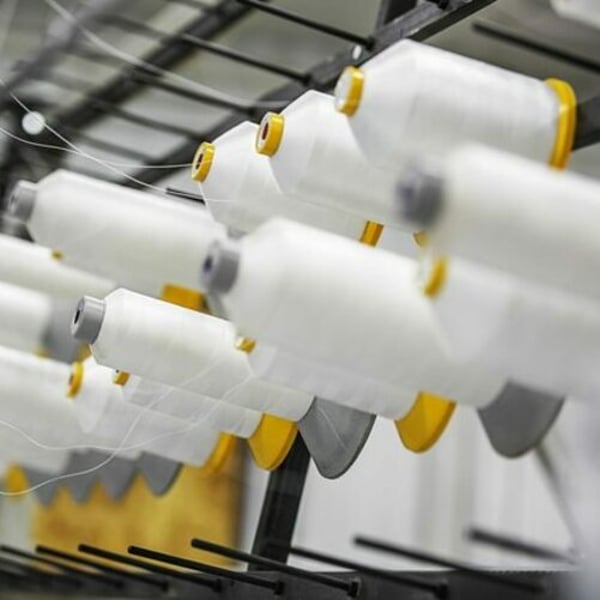H&M Group has joined forces with Vargas Holding to launch Syre, a new venture “to rapidly scale textile-to-textile recycled polyester”. It’s also backed by TPG Rise Climate.
The retailer has an offtake agreement with Syre worth a total of US$600 million over seven years, “covering a significant share of [its] long-term need for recycled polyester, which is currently primarily sourced from rPET bottle-to-textile”.
Syre’s CEO Dennis Nobelius said “Syre marks the start of the great textile shift. We envision a world where every textile fibre sees a new day. By implementing true textile-to-textile recycling at hyperscale, we want to drive the transition from a linear to a circular value chain by putting textile waste to use, over and over again.”
It will aim to provide a recycled polyester yarn with equivalent quality to virgin polyester, but with a lower impact on the planet. It’s building a production plant in the US (in North Carolina) that should start operations this year.
From there, the manufacturing process and technology will be scaled up for global expansion and it’s aiming for 12 plants globally within 10 years.
The other partners in the operation, as mentioned, include Vargas Holding, which specialises in building impact companies (Northvolt, Polarium, H2 Green Steel and Aira) “to realise ideas that push boundaries for a sustainable future”. And TPG Rise Climate is a dedicated climate investing arm of global alternative asset manager TPG. It brings “extensive experience scaling climate solutions globally and in companies focused on the circular economy”.
With all this, H&M Group said it aims to “contribute to a meaningful shift in the industry by moving away from virgin polyester and the current industry standard, towards a closed loop alternative”.
And still-new H&M CEO Daniel Evrér said the Swedish fashion retail giant wants to “inspire more industry players to join us in closing the loop and accelerating the shift towards a more sustainable future”.
The firm’s ultimate aim is to have 100% of materials to be either recycled or sourced in a more sustainable way by 2030, with the earlier aim of 30% recycled materials by next year. It’s getting closer to that target and said the current 2030 goal calls for 50% recycled by 2030.
Copyright © 2024 FashionNetwork.com All rights reserved.







